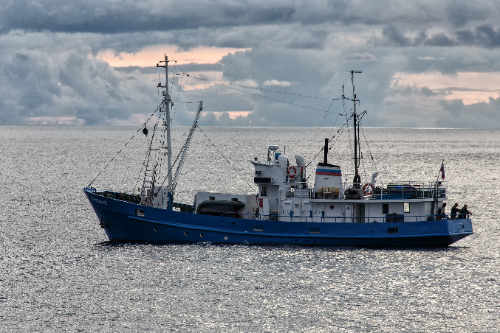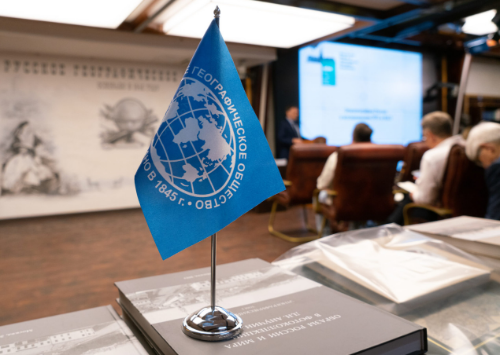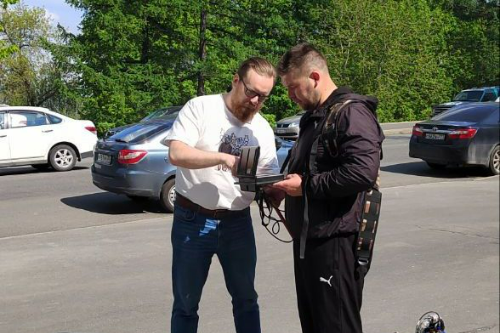– PABGI herbaceous plant nursery offers an ample selection for the purpose: plants from all continents except for the Antarctic, but mainly from mountain systems of Eurasia and North America, are cultivated there. All in all, the botanical garden harbors 1134 species of introduced herbaceous plants, – Doctor of Biology Tatyana Shibaeva tells.
The scientists were to perform round-the-clock measurements of leaf stomatal conductance. Stomata are special structures in the epidermis of leaves. They consist of two guard cells and the stomatal pore between them. It serves as the channel for gas exchange and water movement and evaporation. The stoma opens when the cells are saturated with moisture and closes when the moisture is drained to protect the plant from desiccation. The measurements were made to determine whether stomatal function and, hence, the plant’s photosynthetic system, retained their endogenous [driven by internal factors] daily rhythms in the midnight sun period.
– The thing is that after some time in artificial settings, when plants are placed in climate chambers with constant light and temperature, the endogenous daily rhythm of stomatal function is lost, – said Tatyana Shibaeva explaining the need for the study in the polar environment.
The scientists found as a result that the circadian rhythm of stoma functioning persisted in both native and introduced plants in spite of the total lack of darkness. The presumed rhythm-maker in this situation is the variable temperature, since nights in the High North are cold, even if light-filled.

On an tour of the PABGI hothouse, where 616 species of tropical and sub-tropical plants are kept under polar day and polar night conditions
The expedition was part of RFBR-funded project “Physiological-biochemical mechanisms of plant resistance to 24h photoperiod” (2020–2022, Leader A.F. Titov, RAS Corr. Academician). An integrated study of the effect of constant light will be implemented in this project for the first time. It will enable photoprotection processes and the mechanisms of their regulation to be compared between resistant plants well-adapted to northern conditions and light-sensitive crop plants. It is expected that the project results will be of theoretical as well as of practical value. They will give an insight into the mechanisms of resistance and adaptation to constant light in plants. The newly generated knowledge will also form the basis for developing photoculture techniques to promote the economic performance of crop farming in controlled climate conditions, e.g., in greenhouses and “plant factories”. Karelian scientists have already used some of the data in practice. Thus, 24h lighting is applied to produce microgreens enriched in substances beneficial for humans.
The expedition participants thank Natalia Shmakova, Doctor of Biology, Chief Researcher at PABGI Laboratory for Introduction and Acclimation of Plants for her hospitality and the comfortable conditions for laboratory work.
Photo of the group from the Laboratory for Ecological Physiology of Plants (Institute of Biology KarRC RAS). For more pictures from the expedition visit KarRC RAS VK community pages.








